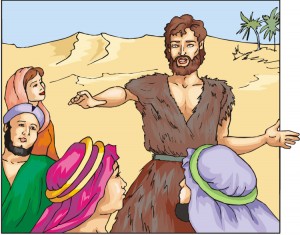Tired of God in a manmade box, religiosity, church walls that keep you from flying high, religious head-knowledge that leaves you high and dry, meaningless rituals, religious middle men con artists who your money and as they enslave you spiritually? Sick of the world and its evil negativity? Want to fly above it all? Here are some tips to help you to create your own personal God bubble, place of peaceful refuge that will help you to soar above it all and give you a personal and direct relationship with the Creator of the Universe.
Tag Archives: Religiosity
22 Tips to Walking in the Presence of Elohim
(From Hoshana Rabbah Biblical Discipleship Resources at www.hoshanarabbah.org.)
It’s time to extricate YHVH Elohim from the religious boxes we all too often have confined him to in our lives. These boxes are times and places we do our “God-thing.” This can be church or other religious services, grace at meals, and even or personal devotional times. After having thrown a bit of religiosity at Elohim, we then go our way as if he weren’t much of a part of our lives. In this way, we keep Elohim confined to a few boxes labeled “religion.” We keep him trapped in these closets when he wants and demands to be part of every aspect of our lives.
Here are 22 practical tips for bringing YHVH into every aspect of your daily life.
- Watch and pray (Matt 26:41; Mark 13:33; 14:38; Luke 21:36).
- Pray that you might be counted worthy to escape YHVH’s judgments that will be coming on the earth because of wickedness (Luke 21:36).
- Endure to the end (Matt 24:13; Mark 13:13).
- Keep your eyes on the Yeshua the Lamb and follow him wherever he goes (Rev 14:4).
- Occupy until Yeshua comes (Luke 19:13). Be busy doing what Yeshua has called you to do.
- Engage in intercessory prayer, though at this time, it may not do much good, since biblical prophecy has to be fulfilled as end time events occur. This means that things will be getting worse and worse until Yeshua returns and destroys Babylon the Great New World Order.
- Be an overcomer in every way possible. Be not overcome of evil, but overcome evil with good (Rom 12:21). Those who overcome spiritual evil will experience great rewards (Rev 2:7, 11, 17, 26; 3:5, 12, 21)
- Be prepared to engage in civil disobedience as a last resort, if necessary. If civil laws violate YHVH’s laws, the Bible tells us to obey YHVH’s laws over men’s laws (Acts 4:19; 5:29; Ps 94:16).
- Be prepared to help persecuted brothers and sisters in any way possible. You might be next the next one to be persecuted!
- Continue to be salt and light to those around you in every way possible (Matt 5:13–16).
- Don’t expect things on earth to get better. Yeshua never said it would get better, but only darker before his return. He’s coming at the midnight hour when evil will be the most pervasive and rampant on the earth.
- Expect intense persecution of Bible believers (2 Tim 3:12; Matt 5:10–12; 10:22–25; 23:34; Mark 10:30; John 15:19–21; 16:2, 33; 17:14; 1 Thess 3:3–4; 1 Pet 4:12–16; Rev 7:14). Yeshua and the Book of Revelation prophesy this will occur in the end times.
- Be wise as serpents (Matt 10:16). Find ingenious ways to circumvent Caesar’s evil and unbiblical mandates without getting caught, while at the same time being obedient to YHVH’s higher laws.
- Love not your lives unto death (Rev 12:11). Be willing to lose some or all of yourself for Yeshua including your material possessions. Greater rewards await you for your faithful obedience to Yeshua (Matt 10:39; 16:25).
- Be inspired by the great faith heros of the Bible and the Christianity (Heb 11).
- Come out of Babylon more completely (Rev 18:4) starting with the spiritual aspects of this evil and ungodly worldwide system. Eventually, this may mean leaving the cities and going into communal situations into the wilderness with others like-minded believers. Some of the Roman Catholic monasteries were started by those fleeing the corruption of Rome.
- The more evil intensifies against you, love the light of YHVH’s truth, love Yeshua more and run to and hold on to him — the Rock of your salvation — more tightly.
- Love your enemies, do good to those who despitefully use you and pray for them (Matt 5:44).
- Put the audio Bible on your iPod or smart phone and listen to during the day.
- Wear tzitzits or fringes on the corners of your garments as the Torah commands to help you remember YHVH and the importance of loving him by keeping his commandments throughout the day (Num 15:37–41; Deut 22:12).
- Fast periodically even if it’s only for a meal or two. Among the many spiritual benefits of fasting, when you feel the hunger pangs, it will remind you to think about YHVH Elohim and the need to grow closer to him by controlling and sublimating the carnal appetites.
- Read your Bible and pray after you get up in the morning and as you’re going to sleep each night even if it’s only for a few minutes.
Torah-Obedience 101: Just Be Nice!
Luke 3:7–17, Then he said to the multitudes. What’s really going on in this exchange between John and the religious folks of his day? Let’s step back and look at the bigger picture.
The multitudes of Jews had to make the long, hot and arduous journey down through the Judean mountains down to the Jordan River, which was the lowest spot on earth, to hear John the Baptist who was the latest fad preacher to come on the scene. However, when they arrived at his lonely wilderness pulpit, instead of stroking their egos by complimenting them for their religious zeal, he excoriates them and calls them a brood of vipers. John confronts them when he says that if they don’t repent, the fires of YHVH’s judgment will consume them (John 3:7–9). John’s preaching pierces their hearts, and lays them low spiritually, and they ask him what he expects them to do (John 3:10). John then preaches a message of social justice involving giving to the poor, being fair and honest in your business dealings, and if you’re a government worker, treating the citizens you serve with respect (John 3:11–14).
Interestingly, he doesn’t instruct these religious Jews in what many might consider to be the specificities and dos and don’ts of the Torah-law. In our day, most Messianically inclined Torah teachers are telling their listeners to punctiliously start observing the 613 commandments of the Torah, and to cease working on the Sabbath, stop eating pork, toss the Christmas trees in the dumpster, grow a beard, put on a tassel and a head-covering, and to say “Yeshua” instead of “Jesus.” John instead tells his hearers to go back to the basic — something they either never learned to do or they had forgotten along the way. He’s really saying, “Just be nice to your neighbor. Be fair, honest, loving and caring in your dealings with your fellow man.” And then John points them to Yeshua the Messiah who is soon to become the new star on the Judean preaching scene (Luke 3:16–17). So be nice and follow Yeshua—the most loving Person of all, he says.
When witnessing to people, what is our approach? Do we bash them over the head with a Torah scroll by telling them all the religious legal requirements that are required of them, or do we tell them simply to love one another and to follow Yeshua, which inevitably, but lovingly, will lead them to observing the righteous requirements of the Torah?
But there’s more. Continue reading
Cut the Religiosity. Just Be Nice!
Luke 3:7–17, Then he said to the multitudes. What’s really going on in this exchange between John and the religious folks of his day? Let’s step back and look at the bigger picture.
Multitudes had made the long, hot and arduous journey down through the Judean mountains to the Jordan River, which was the lowest spot on earth, to hear John the Baptist who was the latest fad preacher to come on the scene. However, when they arrived at his lonely wilderness pulpit, instead of stroking their egos by complimenting them for their religious zeal, he excoriates them and calls them a brood of vipers and tells them if they don’t repent, the fires of YHVH’s judgment will consume them (John 3:7–9). John’s preaching pierces their hearts, and now laid low spiritually, they ask him what he expects them to do (John 3:10). John then preaches a message of social justice—give to the poor, be fair and honest in your business dealings, and if you’re a government worker, treat the citizens you serve with respect (John 3:11–14).
Interestingly, he doesn’t instruct these religious Jews in what many might consider to be the more weightier matters of the Torah-law. He doesn’t tell them to punctiliously start observing the 613 commandments of the Torah, and, by the way, to stop working on the Sabbath, stop eating pork, to toss their Christmas tree in the dumpster, grow a beard, put on a tassel and head-covering, and to say “Yeshua” instead of “Jesus.” He’s basically telling them to go back to the basics—something they either never learned to do or they forgot along the way. He’s really saying, “Just be nice to your neighbor.” Be fair, honest, loving and caring in your dealings with their fellow man. And then John points them to Yeshua the Messiah who is soon to become the new star on the Judean preaching scene (Luke 3:16–17). So be nice and follow Yeshua—the most loving Person of all.
When witnessing to people, what is our approach? Do we bang them over the head with the Torah scroll and tell them all the religious things that they need to start doing, or do we tell them simply to love one another and to follow Yeshua?
But there’s more. Continue reading




